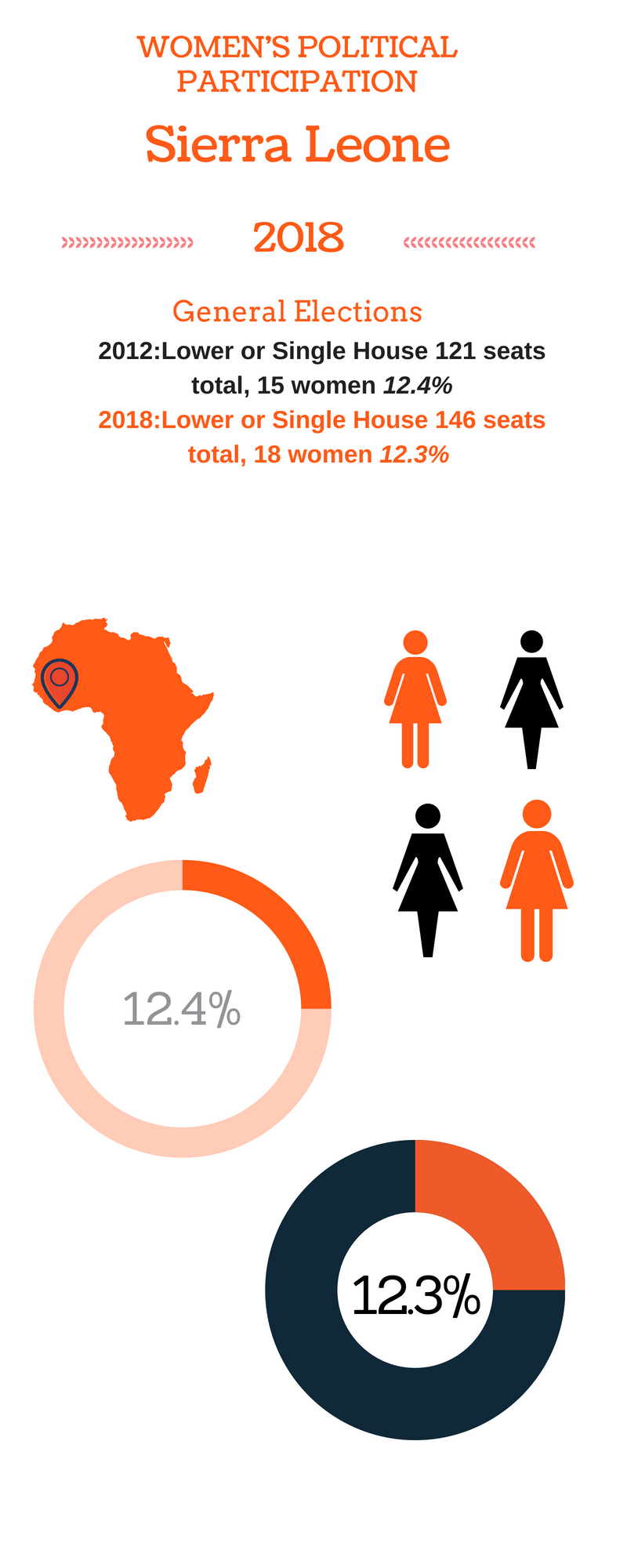The Republic of the Sierra Leone is a country in West Africa with 6 million inhabitants. In 1991, a civil war breaks out when the neighboring country Liberia spilled over into Sierra Leone territory. The war, that took an end in 2002, was characterised by widespread atrocities and resulted in some 70,000 casualties and 2.6 million displaced people. Since then, democracy is slowly being reestablished and elections were hold in 2002, 2007 and 2012. In March 2014, the UN Integrated Peacebuilding Office in Sierra Leone left the country after more than 15 years of peacekeeping and political operations.
The 2018 general elections were the first organised since the end of the civil war without the presence of a United Nations peacekeeping mission. During this election 16 parties nominated presidential candidates, 17 parties nominated parliamentary candidates, and 43 independent parliamentary candidates competed. The National Electoral Commission reported 3,178,663 registered voters, of which 1,654,228 were female. The voter turnout was up to 2,676,549 registered voters (84.2%) who went to the polls.
2 women and 14 men ran for the presidential election. A second round was required as no presidential candidate received the mandatory percentage of 55% of the votes. Julius Maada Bio, leader of the Sierra Leone People's Party, became the President of Sierra Leone on the 4th of April 2018 after winning the run-off election with 52% of the vote.
Women's Political Participation
The two women candidates to the Presidential election were : Femi Claudius Cole, leader and Presidential Candidate of the Unity Party and Gbandi Jemba Ngobeg, candidate for the Revolutionary United Front Party. Femi Claudius Cole received 0.2% of the vote and Gbandi Jemba Ngobeg, 0.5%. This could be considered as an improvement comparing to the 2012 elections, when no women contested the presidential elections.
Sierra Leone has a unicameral parliament[1] with legislated quotas at the sub-national level only (there are no voluntary quotas). Women's groups had advocated for special seats in the local councils in 2004 when new local councils were created, but the proposal didn’t pass. Yet, equal representation for women was granted at the lower level, for the Ward Development Committees, elected at town meetings: out of 10 members, 5 must be women.
Concerning the parliamentary elections of 2018, out of the 795 parliamentary candidates, 100 were women (12.5%). However, only 18 of them women got a seat at the Parliament, representing 12.3% out of 146 seats. In 2012, 12,4% of the members of the Parliament were women. Finally, out of the 120 chair/mayor candidates, 18 were women (15%) and out of the 2623 local councilor candidates, 464 were women (18%).
Conclusion
The inclusion of women in politics is still really low in Sierra Leone. The small number of women nominees for the 2018 elections revealed an absence of sincere political will to bring more women into the political sphere in the country. The main problem raised by the women aspirants concerned funding. The limited opportunity for women to play a role in the main parties, which are the main source of campaign funds, disadvantage them. The creation of legislated quota in the Parliament could help to remedy this situation.

[1] Members of Congress are elected in single-member districts according to the "first-past-the-post" (FPTP) principle, meaning that the candidate with the plurality of votes is the winner of the congressional seat.
